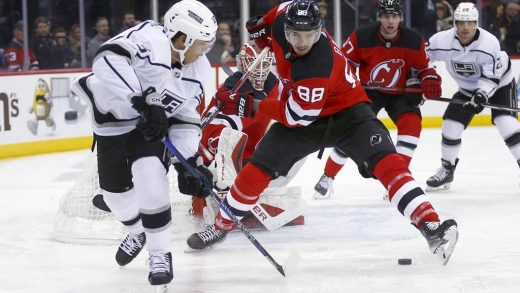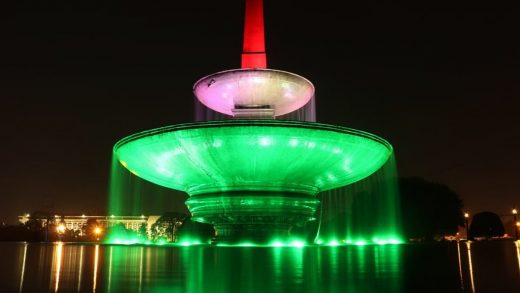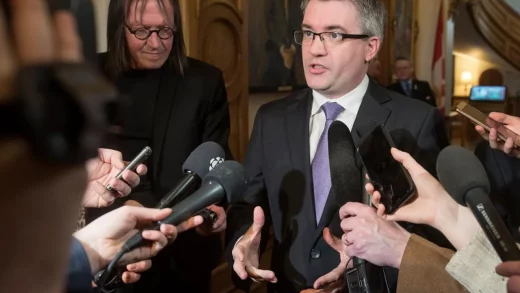:format(webp)/https://www.thestar.com/content/dam/thestar/entertainment/books/opinion/2023/01/10/prince-harry-goes-scorched-earth-in-memoir-spare-and-im-willing-forgive-him-but-his-family-wont/spare_by_prince_harry.jpg)
The son of the future king has come to a therapist in search of relief from his existential pain.
The boy, become a man now, can no longer visualize his mother, killed in a car crash when he was not yet 13 years old. Can’t hear her voice. Can’t smell her perfumed scent. Can’t speak of his loss.
But also fearful that resurrecting the memory of her, cracking open that defensive shell, will obliterate his precious hurt — blow away the ashes which are all that remain of her beloved presence.
“The pain … that’s all I have left of her. Some days the pain is the only thing holding me together. And also, I suppose, without the pain, well, she might think I’ve forgotten her.”
Then why is he here? the therapist asks.
“What I need is to be rid of this heaviness in my chest. I need … I need … to cry. Please. Help me cry.”
I am seized with pity for this wounded creature. There, on page 309 of “Spare,” I am willing to forgive Prince Harry everything.
But his closest kin probably won’t. Not father Charles, not brother William, not sister-in-law Kate, and definitely not stepmother Camilla.
Should they actually read Harry’s memoirs, which indeed launch broadsides at the royal family. Probably crossed any remaining red lines, swept away all crumbs on a potential path to reconciliation. Because the prince — spare to his brother’s heir — has laid down hellfire, far more incendiary than that bombshell chat with Oprah Winfrey. This is scorched earth even if Harry fails to comprehend that the conflagration will consume him too.
“Darling boy,” as Charles always addressed his younger son, the ginger spawn. The words he spoke on the morning of Aug. 31, 1997, rousing the boy from sleep. “Darling boy, mummy’s been in a car crash … They tried, darling boy. I’m afraid she didn’t make it.”
This was the jagged shard of broken glass that ravaged Harry’s existence. This is the trauma that mutilated his life. And this, more than the many explosive claims in “Spare” — which actually spares no one — is at the heart of the book released globally on Tuesday.
That’s not how the media accounts of the autobiographical account have read, since “Spare” accidentally went on the shelves in Spain last week, its most combustible contents flashed around the world and almost universally condemned. Certainly not the thrust of TV interviews either which Harry has given in recent days, presumably putting aside his deep-rooted loathing of journalists — “monsters” and “grotesque” he labels them — though more specifically he means the merciless reportage of the British tabloids. He blamed, still blames, the hounding paparazzi for the death of his mother in Paris, and he’s not wrong, despite a French judge clearing photographers of all culpability in their chaotic pursuit of Diana and her recent boyfriend Dodi Fayed through the Alma tunnel that night. The last thing his doomed mother saw, Harry writes, was the pop of flashbulbs.
The same breed of harassers and tormentors, Harry insists, that drove he and his wife, Meghan Markle, from Britain to California — still the Duke and Duchess of Sussex but absconding as working royals and blasted six ways from Sunday for flying the coop, swapping one life of immeasurable privilege for another.
It’s all Meghan’s fault … she’s made a eunuch of him … overdosing on New Age-y over-sharing … led around by his todger (which, by the way, once suffered agonizing frostbite whilst in the Arctic, amongst the barrage of intimate details Harry reveals).
All of which may be true. Certainly the Sussexes are wincingly self-absorbed and, with a recent six-part Netflix documentary, their relentless machinations to reclaim their narrative reached fever pitch. Can they not just give it a rest? But this tell-all memoir, part of the multi-mega-million-dollar bonanza the couple secured after fleeing their gilded cage, was scheduled for publication in the fall, deferred after the death in September of Queen Elizabeth II. One small mercy for the sovereign — “granny” — to have passed away before another dagger between the ribs.
The chronicles of H, as H sees them, through the reflecting mirror of H, suffused with the resentments of H, one-time Hooray Harry and the most popular of royals — favourability that cratered to 26 per cent in a YouGov poll last week — and doubtless causing conniptions in the House of Windsor, if not monarchy itself.
As Prince Harry’s book “Spare” is released worldwide, AP reporter Hillel Italie describes it as “explosive,” with a tone of sorrow about Harry’s relationship with his brother William. (Jan. 10 / THE ASSOCIATED PRESS)
From tragedy and trauma to domestic turbulence apparently without end. Because, while “Spare” may salve Harry’s hurts, the memoir will surely widen the breach, rendering any family rapprochement impossible. As the author warns in his prologue: “Pa? Willy? World? Here you go.”
This rendition of Harry, early on dubbed by the tabs as “Prince Thicko” for his serial blunders of misbehaviour and poor judgment, defends the revelations in “Spare” thusly: “Silence only allows the abuser to abuse. I don’t see how silence can make things better.”
It’s difficult to trace the alleged abuse Harry absorbed. His childhood was all sunshine, to hear him tell it, but for the intrusion of those long lenses. An adoring mom, if deeply unhappy in her marriage, and an affectionate, though not physically demonstrative dad. Certainly not a “Pa” sufficiently wired for single fatherhood. The rest of the melodrama in the household — most particularly the Diana nemesis that was Camilla — Harry was too young to understand. And then abruptly he was motherless. Making him walk behind Diana’s casket borne on a gun carriage, that was definitely cruel. He’s still not recovered from the horror of it.
Sibling rivalry existed between the brothers. They were not, Harry asserts, as close as presented, though yoked in grief, both born to the culture of a stiff upper lip, exponentially stiffer in the royal family. It took Harry, he says, a decade to accept that Princess Diana had died, clinging to the magical thinking that she’d arranged the whole thing as a scheme to escape her intolerable life. Crying, which he resisted, would mean acknowledging that she wouldn’t suddenly reappear, not ever.
Harry’s simmering rancour is splashed across the pages as he recollects his youth and young adulthood, quite aimless until he joined the military, where he experienced some semblance of normal, or at least ordinary mate ease within the always present fact of his princedom.
Bombshells are dropped throughout, from Harry and William pleading with their father not to marry Camilla, to Harry seeking numbness over Diana’s death via alcohol, drugs and loutish lad behaviour and — what he doesn’t state but becomes apparent to the reader — an obvious search for a surrogate mother in his romantic relations.
He accused Kate and William of never liking Meghan and resenting the former “Suits’ star’s initial popularity, her royal tour triumphs. William, he writes, stereotyped his wife as a “divorced, biracial American actress,” too outspoken, “rude” and “abrasive,” heedless of protocol, who would disrupt the royal family compact. When in fact, Harry proclaims, she saved him. “Rather than getting drunk, falling out of clubs, taking drugs, I’d now found the love of my life.”
Harry tells of escalating tensions between Kate and Meghan, duchess-on-duchess grievances — Kate jealous of Meghan’s gloss — that metastasized over petty misunderstandings and demands for apologies from the (now) Princess of Wales. Meanwhile, with the media forcefully turning on Meghan, she couldn’t put a foot right.
There was treachery and betrayal, Harry avows, the Cambridges bridling at being eclipsed by the newly minted Sussexes. The dueling brothers split their royal households, while Harry tried ineffectively to fend off attacks from the press and protect a wife struggling with clearly racist treatment in the media and frequent death threats. It was self-survival that made them quit the United Kingdom — his decision, Harry insists, not Meghan’s.
The estrangement came to an ugly climax in a one-on-one confrontation at a meeting William had asked for at his brother’s house, Frogmore Cottage. “He’d come to lay down the law. He wanted me to admit that Meghan was wrong and then agree to do something about it. Like what? Scold her? Fire her? Divorce her?”
That scene ended with William, says Harry, attacking him physically. “He grabbed me by the collar, ripping my necklace, and he knocked me to the floor.”
Harry’s strongest condemnation, however, is reserved for Camilla, the Other Woman who’s now Queen Consort. Just, says Harry, as she’d always plotted. It was Camilla, he’s certain, who leaked damaging stories about the Sussexes to her allies in the media, accusing his stepmother of sacrificing them on her “personal PR altar.”
But can Harry be believed? Because he has proven himself adept at revisionism, if not fabrication.
The knockout blow in that famous sit-down with Oprah nearly two years ago was when the Sussexes alleged someone (unidentified) in the royal family had made an appalling remark about the skin colour of the unborn baby (Archie) Meghan was then carrying. Concerns, Meghan told Oprah, about how dark his pigmentation might be. That triggered scandal a royal crisis.
Yet in his interview with ITV’s Tom Bradby, which aired Sunday, the prince maintained Meghan had never accused anyone of racism. “No. The British press said that, right? Did Meghan ever mention ‘they’re racists’?”
Anybody who watched that interview knew exactly what Meghan was implying.
Now, though, Harry slides away from the harsh gist of it. Not racism but “unconscious bias.” He’s absorbed the patois of American identity theory.
Harry is 38 years old. A husband, a father of two, an expat. And forever a prince. Maybe now that he’s excavated his pain, splattered his bitterness, he can just get on with it.
Shush already.
JOIN THE CONVERSATION



